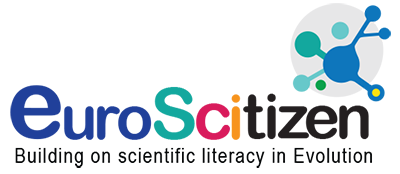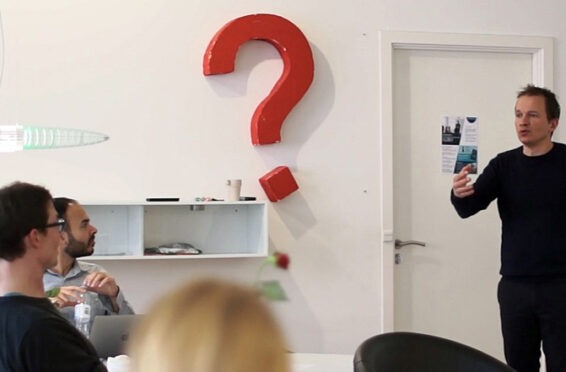EuroScitizen COST Action is organizing a second short online Science-Media Training School directed at young journalists and young scientists. By joining these two groups we aim to improve the quality of the communication and understanding between scientists and media, thus contributing to the increase of the quality of science communication.
Our goal is to create a new wave of effective communication between scientists and journalists to demonstrate that by working together, those groups have power to create meaningful, understandable and open science messages for the public. We hope to provide a foundation for developing efficient links between the scientific and media communities counteracting the increase in fake news, the plummeting quality of journalistic outputs, in this complex, constantly changing landscape of scientific evidence. In fact we believe that this will empower the society and raise science awareness among people because knowledge has the power to improve our surroundings and quality of life.
NOTE: This Second Training School is independent from our previous online science-media training school, with trainers with different expertises, covering different and complementary topics.
This Training School will offer you hand-on practice and it will be conducted by two experienced trainers with scientific and media background. The Training School has three main objectives:
- Information sharing – to spread awareness across trainees who are interested in disseminating reliable scientific information in media, by providing them with skills and tools to communicate science effectively;
- Discussion – to exchange perspectives on topics from two different angles and two, not so different, attitudes represented by journalists and scientists, promoting the communication between these two groups;
- Community building – to help scientists and journalists find best ways of engaging in science communication together, bringing to it the best of the two worlds.
Similarly to the whole EuroScitizen Network – the training school will use evolution as one of the model scientific topics to work on. However, it will also extend its scope beyond evolutionary biology, exploring diverse ways science and media can interact, overcoming misunderstandings and tensions.
Join us! This is a great opportunity to meet an international team of inspiring people with an open mind and the one common goal. We want to communicate better information and stories in a way that will help society to better understand facts, data and science!
The trainers
Sara Sá – Science Journalist. Graduated in space engineering, is specialized in Science Journalism. She has been covering Science and Health topics for more than twenty years in the newsmagazine Visão, Visão Saúde, Visão Júnior, and also in Exame Informática, being also the author of pieces for the television program with the same name. Her work was distinguished by Liga Portuguesa Contra o Cancro, Unesco and Apifarma. She is co-author of the book Cem Mitos Sem Lógica.
https://visao.sapo.pt/autores/sara-sa/
https://www.linkedin.com/in/sara-sa-47a5131a5/
Renata Pinto – PR specialist. Renata graduated in Social Communication by Catholic University, post-graduated in Institutional Communication and she attended a master degree course in Health Communication at the Lisbon Medical School. She started her career as journalist, but her passion for health led her to join the PR industry where she has been lucky to design, develop and implement communication strategies in several fields building up a precious network. In 2018 Renata founded her own agency, National Health Council, Hypertension Society, IVI, Biocodex and Servier are main clients.
https://www.linkedin.com/in/renatapinto/?originalSubdomain=pt
Program
Science and the Media: A match made in Heaven
Session 1 — 20th of October 2021
10:30 -13:30 CET
- Different types of media outlets, different types of languages
- How to communicate to your audience – different types of audiences (journalist, colleague/client/KOL)
- How does a press room work
- Relation Scientist/Journalist (the road to a happy marriage) – cooperation, conflict and pitch, Posture, trust and flexibility
- What is considered news (the different criteria)
- The importance of Storytelling
- Different communication channel (press release, media article, opinion, social media)
- Tips to consider when writing an article/press release
Assignment: the participants will be given an assignment to complete by the following session
Session 2 — 27th of October 2021
10:30 -13:30 CET
- Assignment correction, discussion and questions
Funding
The training school will be held online and it will be free of charge for the trainees.
As this will be a training school involving practical activities, it is limited to 20 participants.
Who can apply?
Training is dedicated to students of journalism (in the last year of master’s studies or equally acceptable level) and science students (last year of master’s studies or equally acceptable level or every year of PhD studies). The school is also open to all stages of early science/journalism careers, but preference will be given to students.
Note that the trainees must be engaged in an official research programme as a student, a PhD student or postdoctoral fellow, or can be employed by, or affiliated to, an institution, organisation or legal entity which has within its remit a clear association with performing research.
COST training schools are aimed at Action members. If you are still not a Euroscitizen Action member, consider joining our Action to participate in this and other Euroscitizen events.
Application
Please fill this application form: https://forms.gle/FHkJrfzMqMrGLoDa8
(Apply by the 5th of October)
Evaluation criteria
Applications will be evaluated based on the following criteria, and then ranked based on the sum of points.
| Evaluation criteria | Maximum evaluation points |
| Current involvement of the participant in the EuroScitizen WGs | 0.2 |
| Scientific/Technical contribution of the participant | 0.3 |
| Contribution to participant professional development and future projects | 0.3 |
| Balance (gender, career stage, country, participation of distinct institutions) | 0.2 |
Deadline for applications
Until the 5th of October 2021

